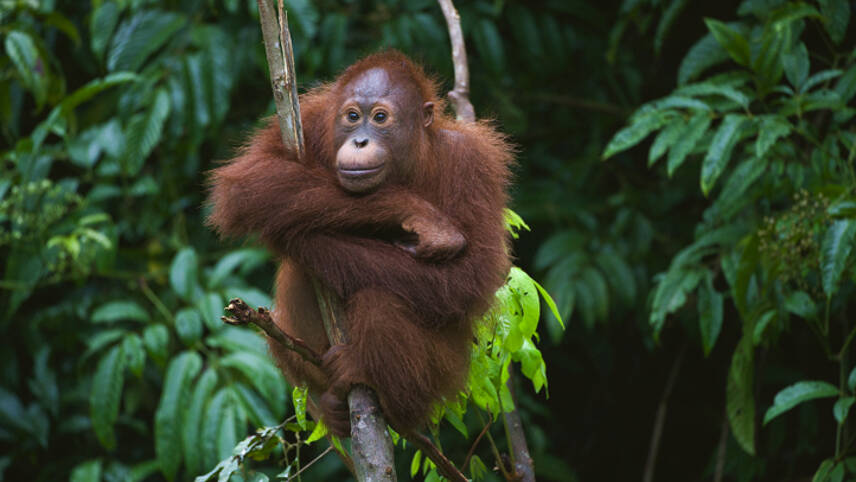Register for free and continue reading
Join our growing army of changemakers and get unlimited access to our premium content

Representatives from more than 193 nations gathered in Nairobi last week as part of the UN’s 15th COP on biodiversity. With the UN’s previous Aichi Biodiversity Targets having gone unmet and the world now on course for its sixth mass extinction, the aim of the COP is to create a “Paris-style” agreement for nature that will end ecosystem degradation and lay the path to restoration at scale.
Last week, the UN confirmed that the second of the two main parts of the COP had been moved from Kunming, China, to Montreal, Canada, and tabled for December. This decision was taken in an attempt to bring an end to strings of delays over the Covid-19 situation in China. Many green groups had hoped that this decision would motivate negotiators to make strong progress in Nairobi. Indeed, the Nairobi talks were added to the COP15 calendar as an “emergency” precaution.
But, with the Nairobi meetings having closed late on Sunday (26 June), observers have generally reported weak progress. The majority of the negotiating text – 80% of it by word count – has been placed in brackets. This means that it could well be changed in Montreal.
A statement issued by the Campaign For Nature states that topics including how much funding would be committed to conserving biodiversity, and what percentage figures of habitat the world should strive to protect, conserve, and restore, were not even discussed.
“Not only did countries fail to progress, but in some cases, new disagreements threatened to move the process in the opposite direction,” the NGO added.
Another statement, from WWF, states that “Brazil stood out as particularly unhelpful, stalling progress nearly every step of the way”. Overall, just 93 of the attending nations have formally stated a commitment to an agreement which would end nature loss by 2030 and aim towards at-scale restoration globally by 2050.
Green groups are calling for a step-change in ambition from world leaders ahead of December’s meeting in Montreal, and a renewed commitment to work together to safeguard the species and ecosystems upon which human activity depends, including soils, pollinators and water-based ecosystems.
WWF’s head of international advocacy Bernadette Fischler Hooper said: “Countries are fully aware of the scale of the threat we face but, instead of laying a foundation for a game-changing ‘Paris’-style agreement for nature, we have seen little progress and no clear outcomes here in Nairobi.
“There is now a real risk of failure if world leaders don’t step up and act. With the clock counting down to the all-important summit in Montreal later this year, there is not a moment to lose: political leaders must get their act together and deliver for nature – our survival depends on it.”
Business for Nature’s advocacy director Maelle Pelisson added: “The week started promisingly: with the long-awaited announcement that COP15 will take place in December 2022. While this initially created a sense of excitement and determination, these sentiments were short-lived.
“The general outcome is a strong sense of disappointment. While there were a few bright spots – including greater recognition of the role of business and significant momentum in favour of mandatory requirements for businesses and financial institutions to assess and disclose their impacts and dependencies on nature, many of the most important issues (yet again) – remain to be agreed. What we need now is strong leadership and engagement at the highest political level – including Heads of State – ahead of and during COP15 if we’re to get on the right track and deliver a strong outcome that truly recognizes and appreciates our relationship with nature.”
The Nature Conservancy’s director of biodiversity policy and infrastructure, Linda Kreuger, added: “Global interest from the UN Secretary-General, Ministers, and Heads of State is needed in the run-up to December, to secure anything like what is needed to slow the extinction and nature loss crisis. Despite scheduling this emergency meeting to address key sticking points within the draft Global Biodiversity Framework language, and also agreeing a date and host country for the final round of negotiations, we are appalled by the lack of progress this week. We need to raise this on the political agenda. The negotiations have lacked fire and momentum.”
Elsewhere in international environmental diplomacy, the UN will host its Ocean Conference in Portugal this week. Opening comments have already been made by UN Secretary-General Antonio Guterres, who apologised to youth “on behalf of his generation” for a lack of effort and progress to “recognise that conditions are deteriorating in the sea” amid issues such as the global temperature increase, plastic pollution and overfishing.
And, in Berlin, members of the G7 are currently meeting to develop their latest annual communique. World leaders will have multiple issues to respond to, including Covid-19 and Russia’s war in Ukraine and the resulting impacts on food and energy security. Nonetheless, the German presidency has urged attendees to be mindful of climate issues and take a joined-up approach, recognising how systemic environmental and social challenges – and their solutions – are linked. Read edie’s full preview for G7 2022 here.


Please login or Register to leave a comment.